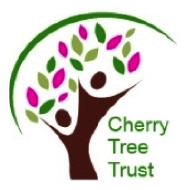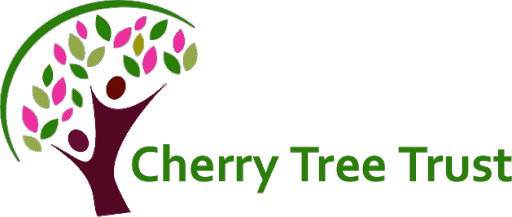Equality
Equality – The Schools Approach
In this school we integrate equality and fairness into all aspects of school life. We are committed to ensuring equality of education for our pupils and equality of opportunity for all. We aim to create a fully inclusive school environment free of discrimination, harassment, bullying and victimisation, where dignity and respect are promoted, where individual differences and diversity are recognised and where the contributions of all our staff are valued.
We also have a legal obligation under the Public Sector Equality Duty and the information below outlines some more information about this. Our equality objectives can be found at the bottom of the page.
We want all our staff to feel respected and to be able to give their best. This school will not tolerate any discriminatory conduct or any behaviour that contravenes the Act or which compromises the school’s aims or approach or which compromises the school’s commitment to equality, diversity and inclusion.
What is the Public Sector Equality Duty?
The single Public Sector Equality Duty (PSED) came into effect in April 2011 as a result of the Equality Act 2010. It requires public bodies to promote equality and replaced three pre-existing duties relating to disability, race and gender equality. The PSED applies to all maintained and independent schools, including academies, and maintained and non-maintained special schools.
Protected Characteristics
The Department for Education (DfE) has published non-statutory advice that sets out schools' obligations under the PSED. Paragraph 5.1 explains that the PSED extends to the following protected characteristics:
- Race, disability, sex, age, religion or belief, sexual orientation, pregnancy and maternity, gender reassignment
These are derived from section 4 of the Equality Act 2010 and are protected by law.
Three Main Elements
Paragraph 5.1 of the DfE guidance explains that the PSED has three main elements. In carrying out their functions, public bodies are required to have due regard to the need to:
- Eliminate discrimination and other conduct that is prohibited by the Equality Act 2010
- Advance equality of opportunity between people who share a protected characteristic and people who do not share it
- Foster good relations across all characteristics, and between people who share a protected characteristic and people who do not share it
Due Regard
Paragraph 5.4 of the DfE's advice says that 'due regard' has been defined in case law and means giving "relevant and proportionate consideration to the duty". For schools, this means:
- Decision makers must be aware of the duty to have due regard when making a decision or taking an action, and must assess whether it may have implications for people with particular protected characteristics
- Schools should consider equality implications before and at the time that they develop policy and take decisions, not as an afterthought, and they need to keep them under review on a continuing basis
- The PSED has to be integrated into the carrying out of the school’s functions and the analysis necessary to comply with the duty has to be carried out seriously, rigorously and with an open mind
Specific Duties
The PSED introduces secondary legislation in the form of specific duties. The duties require schools to:
- Publish information to demonstrate how they are complying with the PSED. This information must include, in particular, information relating to people who share a protected characteristic
- Prepare and publish equality objectives
Schools are required to update this published information at least annually and to publish objectives at least once every four years.
We have set a clear vision and values where we expect all our staff to act in a non-discriminating manner and be mindful to avoid actions that will be deemed as such to the public and our wider community but we also understand that equality law is about treating people fairly and that this does not always necessarily mean treating all people in the same way. We acknowledge that sometimes, in order to meet our general equality duty, we need to make reasonable adjustments for members of our school community with a disability, this may involve treating some people more favourably than others.
We have up-to-date policies, which set out a clear message that discrimination is not tolerated: equality, staff code of conduct, behaviour and child protection.
In everyday school life and in the application and implementation of all our policies and procedures, this school will be guided by the following Key Principles: -
- Principle 1: All members of our school community are of equal value and should be treated with dignity and respect. Every member of our school community is of equal value, whatever their age, sex, gender identity, race, colour, nationality or ethnic origin, religion or belief, sexual orientation and whether or not they are disabled. All members of our school community are entitled to be treated with dignity and respect and should treat others in the same way.
- Principle 2: This school respects and values diversity and difference. In this school we respect, value and embrace diversity and difference and we understand the kind of barriers and disadvantages some people with protected characteristics may face. We will make reasonable adjustments to arrangements or practices in relation to pupils and staff with a disability including the provision of appropriate auxiliary aids and services. The diversity of people’s backgrounds and circumstances will be appreciated and valued. Diversity is a strength, which should be respected and celebrated by all those who learn and teach in this school.
- Principle 3: This school will prepare learners for life in modern Britain. The school will ensure our pupils are well prepared to contribute to wider society and life in modern Britain. The school will equip learners to be responsible, respectful, active citizens who contribute positively to society by developing understanding of British values, by developing understanding and appreciation of diversity and by promoting respect for difference and the protected characteristics under the Act.
- Principle 4: This school fosters positive attitudes and relationships. The school intends that its policies, procedures and activities should actively promote and foster positive attitudes, good relations and mutual respect between all groups of individuals who are different from each other. The school will act to prevent and tackle discriminatory and derogatory language and behaviour including but not limited to language or behaviour that is homophobic, racist, sexist or that is derogatory about people with a disability
- Principle 5: This school fosters a strong shared sense of community cohesion and belonging. The school will strive to ensure that all pupils, members of staff and school governors feel a sense of belonging within the school and within the wider school community and that they feel valued and respected and are able to participate fully in school and in public life
The Equality Targets have been devised after analysis of the end of year data 2024. With the increasing numbers of children who have English as an additional language, it is important that we develop the skills of the teachers and support staff enabling them to support children in English acquisition.
Whilst we reviewed our curriculum we were also aware that children all learn in different ways. We wanted to ensure that girls and boys have equal opportunities. We have analysed data and have found that girls can sometimes fall behind their peers.
We have a large number of children who are in receipt of pupil premium, (67%). We know that vulnerable children are at a disadvantage educationally if they do not have full access to opportunities to develop their language skills. Some children find it hard to articulate their feelings as they have not developed their emotional literacy by all staff using Zones of Regulation we will teach children to be able to regulate their emotions and have the skills to articulate their feelings.
Equality Objectives
To develop the teacher’s abilities to support children with EAL
a) The number of children in each year group identified at the start of the academic year by the Phase Leader.
b) The baseline for the EAL child’s attainment ascertained on admission to NGPS by the class teacher and recorded on SIMs.
c) The progress of each EAL child tracked and monitored with the expectation that 3 progress points are made each year by Class Teacher, Phase Leader and Senior Leadership Team.
d) From this data the Phase Leader will assign EAL children to the appropriate boosting groups for targeted learning opportunities.
To develop the teacher’s abilities to support dysregulated children so they are able to engage with learning.
a) All staff trained in supporting children with adverse childhood experiences (ACEs) using the Zones of Regulation.
b) Each classroom to have a working wall to support children with regulating their emotions.
c) Social and Emotional Plans used for those children who find being regulated a challenge which are reviewed biannually by the class teacher and parent.
To monitor the progress of all pupils under the category of gender so that every child is able to meet their age-related expectations.
a) Assistant Head Teachers to monitor the delivery of the curriculum so that it promotes learning for all genders by monitoring the termly planning.
b) The attainment of each child tracked and monitored. Those falling behind age-related expectations to be allocated to additional support either through small group intervention or on-line learning.
c) Class Teachers to provide activities that encourage learning using research such as boy friendly texts.
We have also formulated an accessibility plan to ensure inclusion for all.


